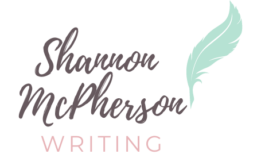It’s not very often when you hear the term “composting” being related to the act of writing and gathering ideas, but stay with me for a few minutes and I’ll show you the benefits of making your very own writing “compost heap.”
Earlier in the year, I took an online writing class through Master Class taught by published author Neil Gaiman. Gaiman is a fantastic author with an extremely vivid imagination, so I was drawn to his class over the other ones offered since his style and genre of writing appealed to me. In the lesson entitled “Sources of Inspiration,” Gaiman brings up how every writer needs a compost heap to put their ideas.
With composting in your garden, you take random scraps of fruits and vegetables, sometimes leftover lawn clippings, and make a compost pile outside where these myriad of ingredients decompose and are used to feed the soil in your garden. They can’t immediately be thrown into the soil in their current state – they haven’t had time to break down and perk for a bit. These bits need time to work themselves out before they can be beneficial to the soil.
The same thinking goes for a writing compost heap. Have you ever been watching a TV show or movie and encountered a character that was really dynamic and interesting? Put them in the compost heap. What about when you’re driving home and the sunset creates a ribbon of purple across the horizon and you think, “what if the sky was always that color purple?” In that goes to the compost heap as well. Ever encountered someone with an interesting last name like, Higgenbottom? That last name needs to perk a little before it finds its right moment in one of your stories.
Of course you can’t make a pile in your backyard of all these ideas, images, people, (literally anything) that you come across. You can create your writing compost heap in a variety of places: journal, file folder with index cards, bulletin board, online document, etc. Do whatever works for you and your organization style. For me, I have a page in one of my writing journals that’s simply entitled “Compost Heap” and I have a list of things written down underneath. These ideas just hang out, perking, and I’ll review them whenever I’m thinking about a new project and see if anything fits. I may just use one thing from the list or I may see how a few seemingly disconnected subjects work together in an interesting way.
Writers draw their sources of information from a variety of places. The important thing, I’ve found, is actually documenting them. It’s one thing to let them hang out in your brain, but brains get very crowded and sometimes that small detail about the way a person spoke will get replaced by something else.
Having all your ingredients for your compost heap in one place will make you a more effective and organized writer. As Gaiman says, “they will rot down and out of them will grow beautiful stories.”
For those interested in the Neil Gaiman Master Class, click HERE.


I’m going to work on this today! I’m not working on original work because I’m not comfortable enough with that, but I think this will be so helpful in expanding my stories to read better. Thank you for this post.
I’m so glad it’s helping you! I can’t wait to hear how it works for you 🙂
Interesting idea! I usually get an idea and then forget it b/c I never write it down. I’ve never thought to write down random thoughts and ideas to look at later!
Give it a try and let me know how it works for you!